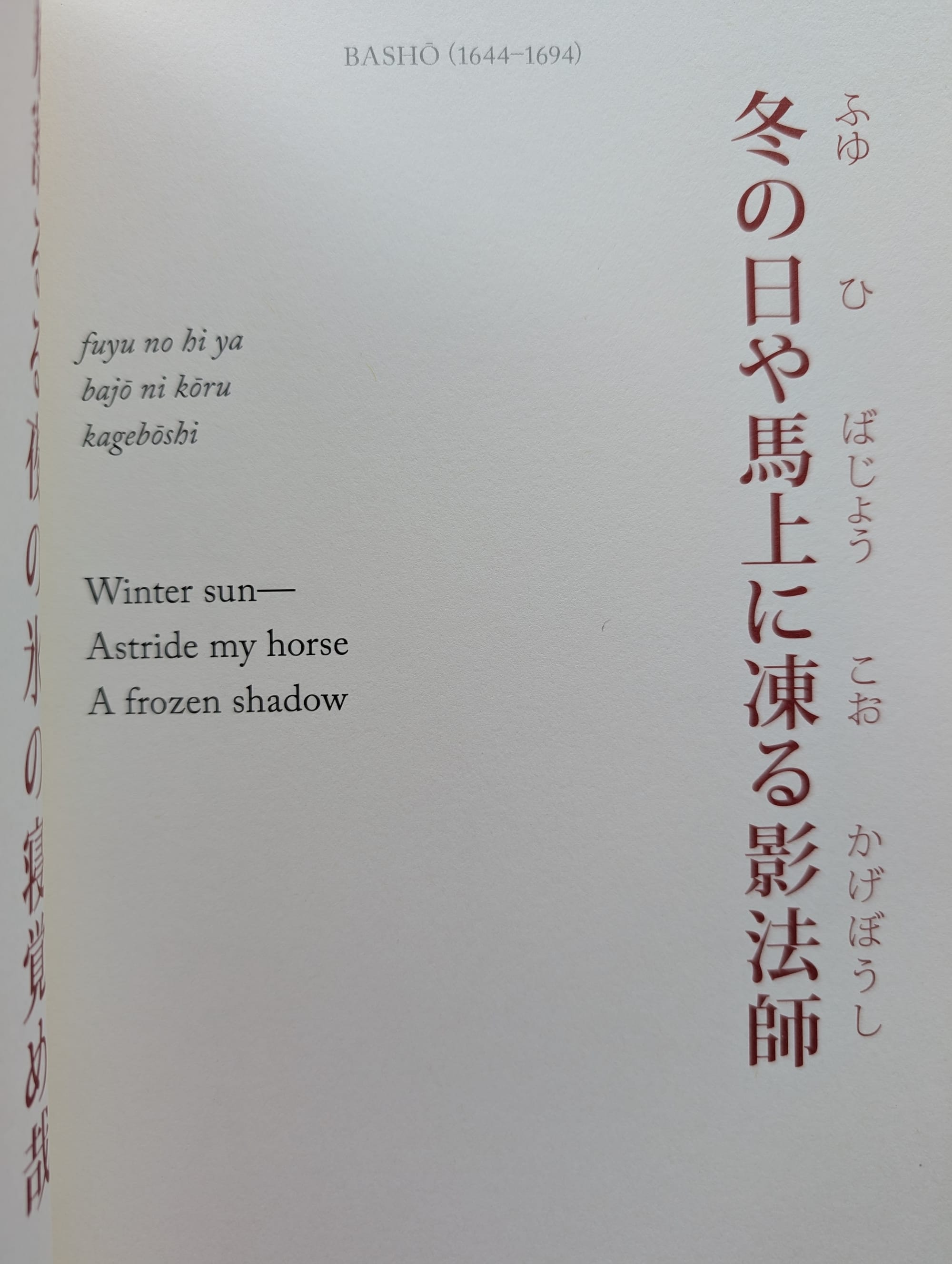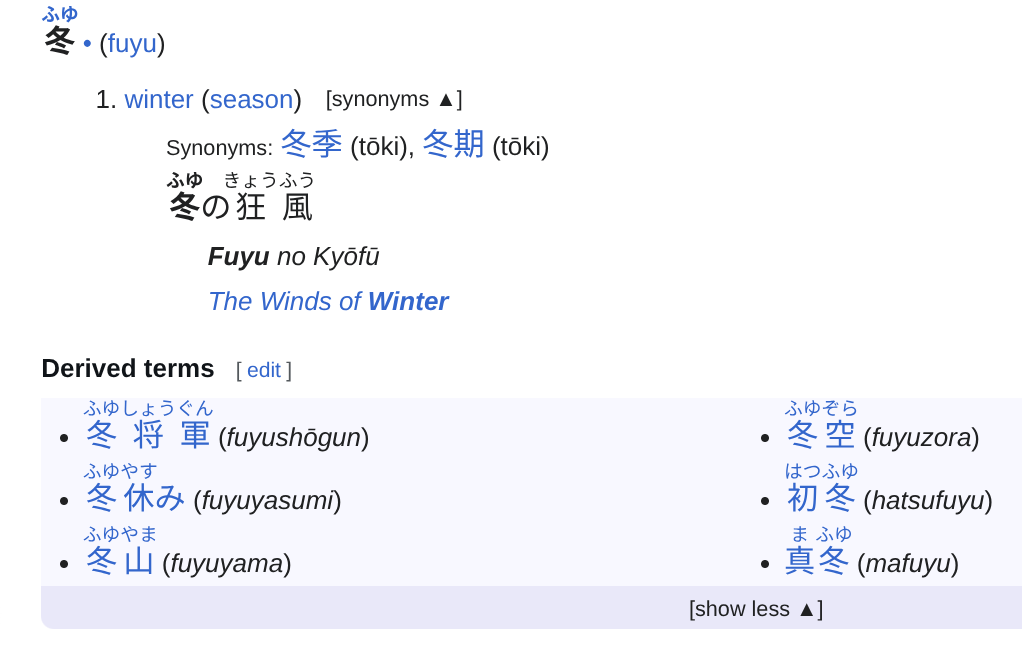Now that I am working hard on learning to read some haiku in Japanese, I try to notice what Japanese texts are available in the different English-language haiku books that I own and/or that I can access online at the Internet Archive.
Having ALL of these features is best, but even just having one of these features allows me to pursue my studies; I've listed them from most commonly found to least commonly found:
romaji (romanization)
hiragana and kanji (Japanese writing)
furigana for the kanji (to pronounce the kanji)
word-for-word translation and/or grammar commentary
And when it comes to the hiragana and kanji, the bigger the better! (My eyesight is not the best.)
One of the best and most beautiful books on my shelf I've found for learning haiku in Japanese is Haiku: Classic Japanese Short Poems by Hart Larrabee. There are lots of cheap-ish copies (around $10 including shipping) available via Bookfinder.com. The 90 poems in the book come from Basho, Buson, Issa and Shiki. Here's what one of the pages looks like:

The romanization is on top, English translation by Larrabee below, and then the Japanese script (in a single vertical line) on the right. Even the furigana to the right of the kanji is printed in a nice big font!
Using the romanization, you can then Google the poem and often find the Japanese text which you can then copy and paste. For example, here is the Japanese text of the poem in the image above, which I found by Googling "fuyu no hi" basho (this kind of hiragana-Googling is also a great way to find haiku resources online in general; there are lots of haiku blogs and websites out there):
冬の日や馬上に氷る影法師
Then, by copying and pasting those hiragana and kanji one by one into Wiktionary, you can create your own literal word-for-word translation. So, for example, the first of the kanji is 冬, which has this Wiktionary entry in Japanese: winter.

I like clicking on the derived terms, especially when I can guess what they mean. For example: fuyuyama. I guessed that one – mountains in the winter!
Larrabee's beautiful book is not available at the Internet Archive, but I have created a big "bookshelf" of over 100 haiku books at the Archive, all of which are available for borrowing! There are some real treasures there, so I'd urge people to take a look: Haiku at the Internet Archive. In a future post, I'll provide a list of the books that I've found at the Archive that have the actual Japanese poems in addition to the English translations.